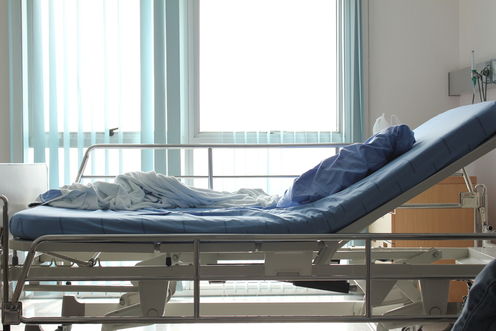
What happens when you bring a state health minister face-to-face with her two main challengers, fronting a roomful of health experts, without any TV cameras or dictaphones to leap on any “gaffes” or stumbles?
What you can get is a genuinely informative debate, largely free of three-second soundbites. I saw this late last month at a public debate sponsored by the Public Health Association of Australia, the Health Promotion Association of Australia and the Menzies Centre for Health Policy.
Watching the debate, I couldn’t help wondering: if our political debates were like this a little more often, how much more could we achieve for informed voting on health matters in Australia?
Health in the NSW election
The NSW election campaign is in its last furious week, ahead of polling day on March 28.
Like building better roads or stronger law and order, some state election issues are hardy perennials – and health always ranks highly with voters. Promises to build or upgrade public hospitals, to shorten elective surgical waiting lists, and employ more nurses are all part of the theatre of every state election.
Of course, new health infrastructure is essential. But lost in the promises of buildings is a more fundamental issue: the necessary recurrent cost of every new hospital bed or operating theatre. Every new hospital bed costs more than A$220,000 a year just to accommodate the patient before the costs of the medical treatment; and every intensive care bed is more than twice as much.
Given the states and territories have limited capacity to increase their revenue, funding new hospital beds will potentially come at the expense of some other health service, such as improved community care. And every recurrent dollar committed to health care comes at the expense of funding some other public services.
This is a political issue and therefore should be an issue voters should get a say on.
Neglected issues
All too often, other substantive health care issues, such as access to speech therapy and community mental health care, get lost in promises to swinging electorates or populist themes.
Serious public health issues – such as taxing soft drinks to prevent obesity, or limiting on the number of packaged alcohol outlets, or the health impacts of motorway tunnels – get a dismissive mention, at best.

That’s why I was so struck by what I heard at the pre-election health debate involving the NSW health minister, Jillian Skinner, and the Labor and Greens spokespeople, Walt Secord and John Kaye.
Aside from the few digs you would expect at the minister on government policy, refreshingly, it was not full of the usual populist promises. What each of the NSW MPs chose to speak about revealed something about themselves and the parties they represent.
The health minister spoke about the importance of integrated care, of joining up the health system for people with chronic and complex conditions, and the importance of community-based services for drug and alcohol dependency, palliative care and chronic pain.

Speaking for Labor, Secord shared a telling insight into his personal perspective on health disadvantage and the importance of universality in access to health care and public education. He noted that these were critical to addressing the poor health of the Aboriginal community along with housing and employment.
And for the Greens, Kaye spoke about the need for governments to intervene when there was market failure. He identified the promotion and over-consumption of fatty foods, sugar-sweetened products and hidden calories, which resulted in ill-health as something that required government regulation.

Their presentations and banter were followed by lively interaction with the audience. Questions ranged from access to treatment for hepatitis B, and alcohol-control measures including banning the number of packaged alcohol outlets, to the importance of nurse-patient ratios for safe care.
A question about the importance of expert health assessments to decisions about motorway tunnels led to a discussion of the health impacts of coal mining and concerns about new mines in the Hunter Valley.
These are all important health issues. Yet how much have you seen them reported on or debated in this state election campaign?
Community-driven health policy
It is possible to engage the community in informed discussion of health options. Several Australian research groups have used deliberative techniques such as citizen juries to examine community preferences around areas as diverse as responses to options for emergency medical care, management of obesity, “fat” taxes, and emerging infectious diseases threats.
The general approach involves providing information and perspectives from experts to groups selected to represent particular communities. The late health economist Gavin Mooney believed that “informed citizens do not have a great enough say in how health services are funded, run and planned” and produced a free guide to their use.
In the world of broadband connectivity, such approaches could be available to the whole electorate.
Given we are repeatedly told we can’t have everything in health care, the broader community is entitled to an informed debate about things that will make substantive differences to their community – and not just promises of local infrastructure and resources that should be decided on measured need and equity.
Read more of The Conversation’s coverage of the 2015 NSW election.
Andrew Wilson is Director of the Australian Prevention Partnership Centre which is jointly funded by the NHMRC, NSW Health, ACT Health, HCF Foundation and the Commonwealth Department of Health.
